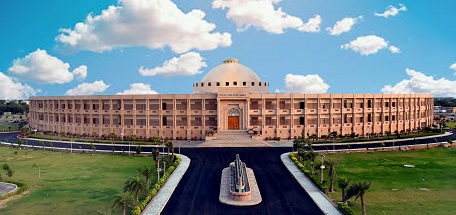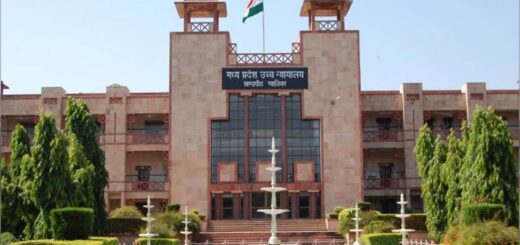Rajasthan High Court rules that gathering a voice sample from an accused for investigation without their consent does not violate privacy rights or the right against self-incrimination.

The Rajasthan High Court has ruled that obtaining voice samples without the accused’s consent does not violate the Fundamental Right to Privacy or the Right Against Self-Incrimination. This decision came from a petition filed under Section 528 of B.N.S.S. 2023, challenging a Trial Court order that directed the recording of voice samples from the accused-petitioners by the Chief Metropolitan Magistrate. Justice Sameer Jain, in a single-bench ruling, stated, “This provision, as interpreted by this Court, effectively balances the needs of investigation with constitutional protections, ensuring that the requirement for a voice sample does not breach Article-20(3) of the Constitution, which guards against self-incrimination.”
The petitioner was represented by Advocate D.K. Garg, while the respondent was represented by Special Public Prosecutor Shyam Singh Yadav. The petitioners are accused of approving contractor bills for a one percent commission, which is considered illegal enrichment. An FIR was filed for offenses under Section 120-B of the IPC along with Sections 7-A and 8 of the Prevention of Corruption Act 1988. Subsequently, the Investigation Agency submitted a charge sheet against the accused-petitioners, which included voice recordings of conversations between employees and the contractor. This prompted the Special Public Prosecutor to request the collection of voice samples from the accused-petitioners, leading to the contested order for recording their voice samples.
Counsel for the Petitioner argued that the accused-petitioners refused to provide their voice samples, while voice samples from other individuals have already been sent to the Laboratory. He stated that the Court cannot force the accused to give a voice sample against their will. He emphasized that no one should be compelled to provide evidence against themselves and pointed out that the Trial Court cannot make negative assumptions about the accused for refusing to provide a voice sample. He claimed that forcing the accused-petitioners to give evidence against themselves violates their fundamental right to privacy and Article 20 (3) of the Constitution of India, which states that no one can be compelled to testify against themselves.
Conversely, Counsel for the CBI countered the privacy argument, stating that the right to privacy is not absolute. He argued that, for valid reasons, permission to record voice samples can be granted in the public interest. The Court noted that it had determined that recording voice samples for the investigation into this Anti-Corruption case is necessary for the public good. The Court referenced a Supreme Court ruling in Pravinsinh, which stated that collecting voice samples does not violate the right to privacy. This conclusion was supported by a previous judgment in the case of Ritesh, which affirmed that the right to privacy is not absolute and must yield to significant public interest.
In this case, while looking at Article 20(3) of the Indian Constitution, the Court pointed out that the Article does not say an accused person cannot be forced to be a witness. It only states that a person cannot be forced to testify against themselves. Therefore, in this situation, taking a voice sample does not automatically mean the accused-petitioners are incriminated; the actual incrimination depends on comparing the voice sample with existing evidence. Additionally, the accused-petitioners can challenge the final outcome, ensuring they have the right to defend themselves. The Court believed that obtaining a voice sample was important for a fair and unbiased investigation.
The Court noted that, like other identification methods such as fingerprints, blood samples, and DNA tests, a voice is a unique characteristic that can help confirm identity through scientific analysis, which is crucial for evidence to be accepted. Importantly, the accused-petitioners do not need to provide any self-incriminating information; they are only required to give a voice sample, similar to providing a blood sample. The voice recording taken by the investigating agency should not be seen as a statement from the accused and should not be directly linked to the crime. The Court also referenced a Supreme Court decision in Omkar Sapre, emphasizing that the Trial Court has the sole power to handle issues related to an accused’s refusal to provide a voice sample, and that no negative conclusions should be drawn just because of such a refusal.
This ruling highlights the authority of the Magistrate to handle requests for voice samples. Additionally, based on the guidance from the Hon’ble Supreme Court in Pravin Sinh and Ritesh, along with the introduction of Section 349 in the Bharatiya Nagarik Suraksha Sanhita (B.N.S.S.), 2023, the Court interprets that First-Class Magistrates are clearly given the power to order individuals, including the accused, to provide voice samples or other necessary specimens for investigations. Section 349 states that such an order can be made if the person has been previously arrested in relation to the investigation, although the Magistrate can choose to waive this requirement if reasons are documented. The Court noted that Section 349 strikes a balance between investigative needs and constitutional protections, ensuring that the demand for a voice sample does not breach Article 20(3) of the Constitution, which guards against self-incrimination. The legislative framework thus allows for a lawful and organized method of collecting voice samples, maintaining the proper procedural and constitutional standards for these investigative actions. Consequently, the Petition was dismissed.
Cause Title: Badri Prasad Meena vs. Central Bureau of Investigation (2024:RJ-JP:43286)
Appearances:
Petitioner: Advocate D.K. Garg, Advocate Rahul Sharma, Advocate Rajneesh Gupta
Respondent: Special Public Prosecutor Shyam Singh Yadav








